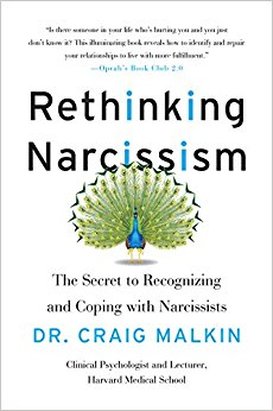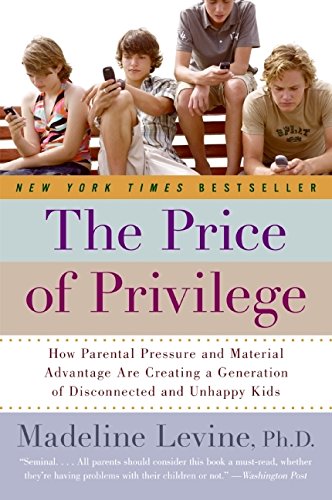When People Tell Me My Rates Are "Expensive", I Tell Them, "That's Because I'm Worth It."10/19/2017 People get their panties up in the HUGEST bunch when I have the nerve to say things like, "I love the way I look," or, "I'm really good at sports." It's like a trigger -- without knowing anything about me, or even finishing the article, they decide I'm "arrogant" and "vain" and "narcissistic." But I'm actually not. (Seriously -- I checked. According to Dr. Craig Malkin's Rethinking Narcissism, I score very highly on "healthy self-regard," but pretty low on "narcissism.") So why do I say these things? Why don't I act more "modest"? Two reasons: 1. Sometimes, objective measures of your qualifications or skills are relevant to the story. (For example, if I'm complaining about how few passes I get at basketball because of sexism, it's relevant that I'm taller, faster, stronger, and better than at least 80% of the men I play with. Otherwise, how do you know the reason I'm not getting passes isn't that I'm a bad player?) 2. It's super important to have AND EXPRESS confidence in yourself, and I'd like to think that I'm pushing back against a sexist double-standard -- at least in some small way. Especially if you're a woman, but even if you're a man, it's important to have confidence in yourself. Without confidence, you're not going to have the vulva (or balls) to ask for that raise. Without confidence, you're not going to have the vulva (or balls) to negotiate for that salary. Without confidence, other people are going to take credit for your ideas -- and then leave you in their dust. It's true! One of the biggest things holding women back professionally is their failure to self-promote. Men do it shamelessly -- and it helps them get ahead. Rather than whine about a woman who self-promotes, or one who thinks she's athletic or beautiful, feminists should encourage other women to do the same. Because, listen up, ladies: Your boss and coworkers won't magically notice all your ideas, efforts and contributions. They only way they're going to know what you've accomplished is if you tell them. You think you're the only person in your office with a million things to do? Everyone is working their ass off -- even/especially your boss. They aren't just sitting around watching you to make sure they notice each of your contributions. IN FACT. If you're a woman, you're less likely than men to get credit for your own work. Especially team work. A 2015 study by Heather Sarsons shows that teamwork hurt women’s careers, because men always get (and take) all the credit. So go ahead. Promote the hell out of yourself! For example, just this afternoon, someone asked me how I ended up with Paved With Verbs students all over the world. One popular thing for women to say is: "I guess I just got lucky!" Or: "I work with a great team!" Or: "I'm so lucky to have had so-and-so as a mentor." (In my case, the mentor is Intuit's former VP of Innovation and Creativity -- and he was much more than a mentor. He was also a sponsor, or someone who recommends me for jobs and promotions. Because, according to the Harvard Business Review, Women are Over-Mentored and Under-Sponsored.) But here's what I said: "My content marketing strategy is working better than I could have expected. Right now, my advice for how to write your supplemental essays for Michigan, USC, Stanford, and the UCs shows up on the first page of Google search results -- not because I keyword-stuffed or tried to get 'good SEO,' but because I wrote incredibly helpful, specific and creative content, and it highlights what I do best. Right now, I think over 25% of students who apply to Stanford consult my blog posts about it, first. But that's a conservative estimate." The person promptly handed me his business card and asked me to email him in my off-season. (If I'm not too busy traveling.) (I will be traveling -- but if I write for him just an hour or two per week while in Southeast Asia, that will pay for the whole trip!) Another question I get sometimes is, "How much do you charge?" It's a weird question, right? People in the US are really awkward about money. I'm no different. But in the interest of transparency, I've clearly listed my hourly and package rates on my website (a lot of educational consulting firms don't do that, and I think it's tacky)... so I reluctantly tell them. And then people are like, "Whoa! That's expensive!" And I'm like, "Yeah... but that's because I'm worth it." If I'm talking to a prospective client, I will elaborate on why I'm worth it (I have incredible results -- last year, I got X students into Stanford, Ivy Leagues, and prestigious BS-MBA and BS-MD programs; I get a huge influx of requests every fall from students who have already spent thousands of dollars on essay help, and they still hate their essays; I have solid references and Yelp reviews; my students always leave smiling and feeling excited about their stories; etc.). Otherwise, I'll just leave it at that. Once in a while, I even get someone trying to shame me about my rates. Check out this lovely email I got just yesterday morning: Or maybe it will just be a snide comment on Facebook about how I "should" be helping lower-income students. Which -- first of all, I do accept a limited number of scholarship students each year. And if you want to donate a scholarship, step right up! We're talking about some of my favorite students. They show up prepared with brainstorms and mind maps and slides they've printed out from the UC admissions website. Second -- it's dumb to act like there is one kind of teenager we "should" be helping. Ever since attending a 2008 talk by Madeline Levine, author of The Price of Privilege: How Parental Pressure and Material Advantage Are Creating a Generation of Disconnected and Unhappy Kids: I've been especially interested in the problems that arise from privilege, pressure, and technology. I kind of did a whole master's thesis on it. A lot of Madeline's predictions came true with a fury, as discussed in Dr. Jean Twenge's iGen: Why Today’s Super-Connected Kids Are Growing Up Less Rebellious, More Tolerant, Less Happy--and Completely Unprepared for Adulthood--and What That Means for the Rest of Us. This book uses large data sets to show just how depressed, anxious, and socially uncomfortable today's teenager's and young adults are. Although, ostensibly, my job is to help students get into top colleges... this is the problem I'm actually trying to solve. I do far more than edit grammar and "profit off of them." My students walk away not only with vastly-improved writing skills, but also critical thinking, skepticism, confidence, and playfulness. Paved With Verbs is a complacency-buster, and I'm so proud of the impact I'm having. So, no. You can't shame me by saying I "should" be solving a problem I'm not passionate about solving. You can't shame me because I "could" be charging less. Because I have confidence in myself, and I'm proud of the work I do. I'm expensive because I'm worth it. I'd be lying if I said I don't have occasional moments of doubt. These students are putting a lot of trust in me, and I'm having a large impact o their future. Am I really giving the best possible advice? In these moments, I remind myself of why I'm doing what I'm doing. Maybe I re-read the thank-you notes and testimonials. That clears up the confusion pretty quickly. So if you're struggling with imposter syndrome, remind yourself of your personal why. Remind yourself of the things you do best -- and find a way to do more of that. Ask yourself what you would need to do to prove to yourself that you, too, are worth it. And don't be afraid to say it out loud, even if you only half-believe it: "I'm worth it." *** Want to know more? Check out The Secret Thoughts of Successful Women: Why Capable People Suffer from the Impostor Syndrome and How to Thrive in Spite of It, by Valerie Young, or Presence: Bringing Your Boldest Self to Your Biggest Challenges, by Amy Cuddy.
2 Comments
Zane Kenney
10/22/2017 05:27:30 pm
Hi Eva. No offense, but you are a narcissist. It may be that the word means something different in science than it does in everyday usage, but I would describe you as narcissistic. Pretty much everyone with a personal blog like this is a narcissist.
Reply
10/22/2017 06:47:02 pm
Well, you know what they say: "You're entitled to your own opinion, but not your own facts." :P We can agree to disagree.
Reply
Leave a Reply. |
About the Author

Eva is a content specialist with a passion for play, travel... and a little bit of girl power. Read more >
Want to support The Happy Talent? CLICK HERE!
Or Find me on Patreon!
What's Popular on The Happy Talent:
Trending in Dating and Relationships:
What's Popular in Science: Playfulness and Leisure Skills:
Popular in Psychology and Social Skills:
Categories
All
|





























 RSS Feed
RSS Feed